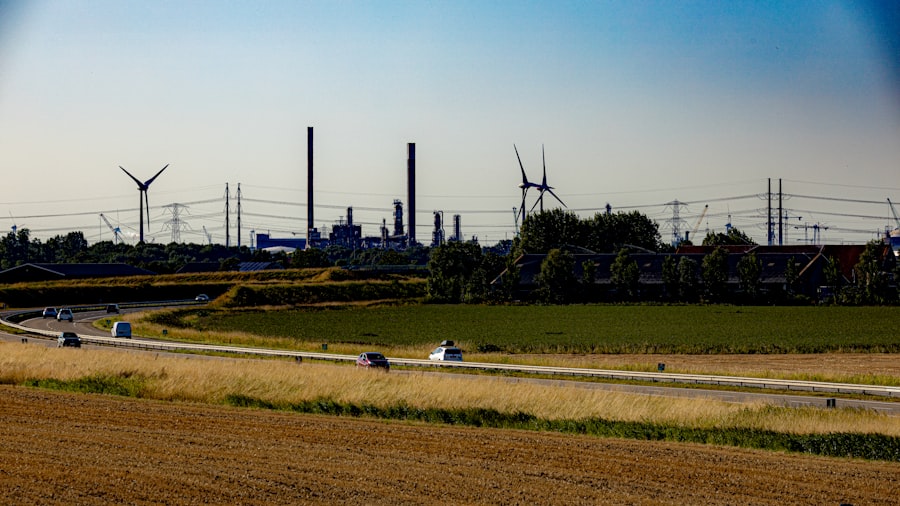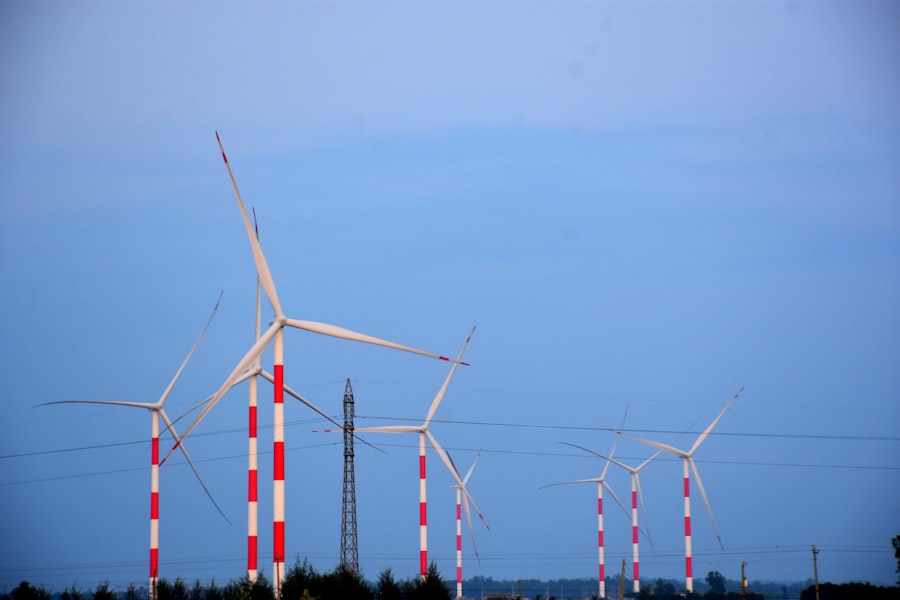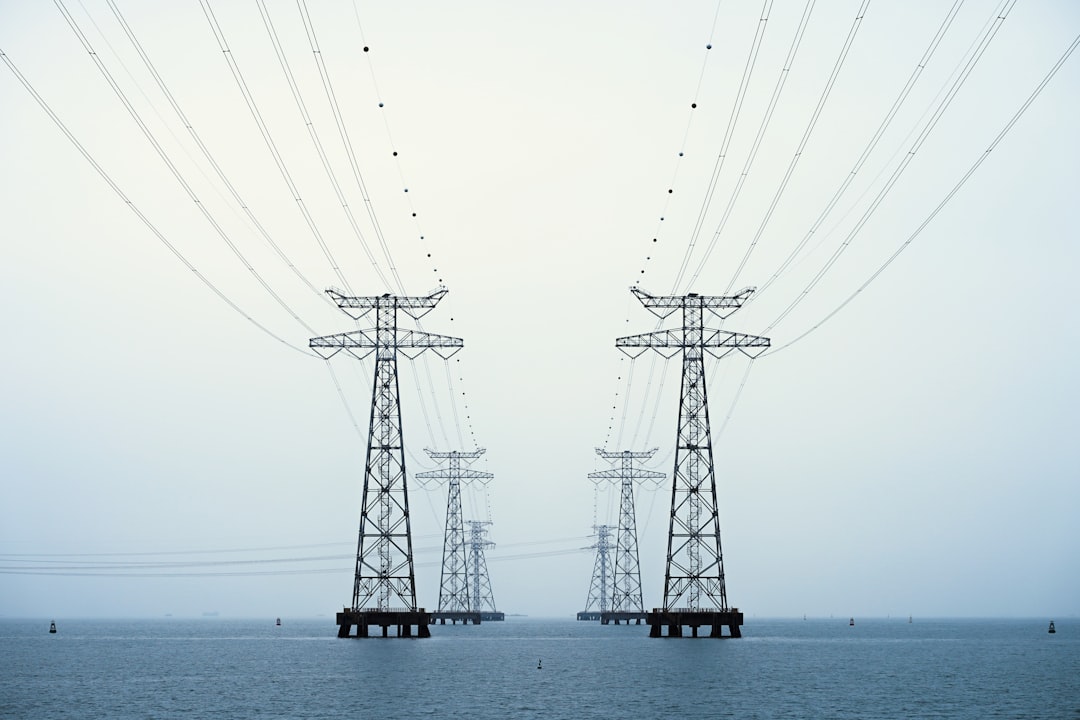Energy security has emerged as a critical concern for European nations, particularly in light of recent geopolitical tensions and environmental challenges. The concept encompasses the availability, affordability, and sustainability of energy resources, which are vital for economic stability and growth. For Europe, energy security is not merely a matter of ensuring a steady supply of fossil fuels; it also involves transitioning to cleaner energy sources to meet climate goals while maintaining the resilience of energy systems.
As Europe strives to reduce its carbon footprint and enhance its energy independence, the importance of a robust energy security framework becomes increasingly evident. Moreover, energy security is intricately linked to national security. Dependence on external energy sources can expose countries to vulnerabilities, particularly when geopolitical tensions arise.
The reliance on a limited number of suppliers can lead to price volatility and supply disruptions, which can have cascading effects on economies and societies. Therefore, ensuring energy security is not just about securing resources; it is also about fostering stability and resilience in the face of potential crises. As Europe navigates the complexities of the global energy landscape, the need for a comprehensive approach to energy security has never been more pressing.
Key Takeaways
- Energy security is crucial for the stability and prosperity of Europe, as it ensures a reliable and affordable energy supply for its citizens and industries.
- Current challenges to energy security in Europe include over-reliance on imports, geopolitical tensions, and aging infrastructure, which can lead to supply disruptions and price volatility.
- Diversifying energy sources in Europe, such as increasing the share of renewable energy and investing in alternative fuels, can reduce dependence on a single energy supplier and enhance energy security.
- Investing in renewable energy technologies, such as solar and wind power, can contribute to a more sustainable and resilient energy system in Europe.
- Strengthening energy infrastructure in Europe, including building interconnections and modernizing grids, is essential for ensuring the reliable and efficient delivery of energy to consumers.
Current Challenges to Energy Security in Europe
Europe faces a myriad of challenges that threaten its energy security. One of the most significant issues is the continent’s heavy reliance on imported fossil fuels, particularly natural gas. A substantial portion of this gas comes from a limited number of suppliers, which raises concerns about supply disruptions due to geopolitical conflicts or market fluctuations.
The ongoing tensions between Russia and Ukraine have underscored the vulnerabilities associated with such dependencies, prompting European nations to reassess their energy strategies and seek alternatives. In addition to geopolitical risks, Europe grapples with the challenge of aging energy infrastructure. Many countries have energy systems that are not equipped to handle the demands of modern energy consumption or the integration of renewable sources.
Furthermore, the transition to renewable energy sources presents its own set of challenges, including the need for significant investments in technology and grid modernization. As Europe strives to enhance its energy security, addressing these multifaceted challenges will be crucial.
Diversifying Energy Sources in Europe

To bolster energy security, European nations are increasingly focusing on diversifying their energy sources. This strategy involves reducing dependence on any single supplier or type of fuel by incorporating a broader mix of energy resources. By tapping into various sources—such as natural gas, nuclear power, renewables, and even emerging technologies like hydrogen—Europe can create a more resilient energy landscape.
Diversification not only mitigates risks associated with supply disruptions but also enhances competition in the energy market, potentially leading to lower prices for consumers. Moreover, diversification extends beyond just the types of energy sources; it also encompasses geographical diversification. By establishing new trade routes and partnerships with different countries, Europe can reduce its reliance on specific regions for energy imports.
For instance, investments in liquefied natural gas (LNG) terminals and pipelines can facilitate access to global markets, allowing European nations to source gas from various suppliers around the world. This strategic approach not only enhances energy security but also fosters greater cooperation among nations in pursuit of shared energy goals.
Investing in Renewable Energy Technologies
| Technology | Advantages | Challenges |
|---|---|---|
| Solar Power | Renewable, low operating costs | Intermittency, high initial investment |
| Wind Power | Abundant resource, low emissions | Visual impact, noise concerns |
| Hydropower | Reliable, long lifespan | Environmental impact, limited locations |
| Bioenergy | Waste reduction, versatile feedstocks | Land use competition, emissions |
Investing in renewable energy technologies is paramount for Europe’s long-term energy security strategy. As the continent aims to achieve ambitious climate targets set by international agreements, transitioning to renewables such as wind, solar, and hydroelectric power becomes essential. These sources not only provide a sustainable alternative to fossil fuels but also contribute to reducing greenhouse gas emissions and combating climate change.
By prioritizing investments in renewable technologies, Europe can create a more sustainable and secure energy future. The benefits of investing in renewable energy extend beyond environmental considerations; they also have significant economic implications. The renewable energy sector has proven to be a catalyst for job creation and innovation.
As countries ramp up their efforts to develop and deploy clean technologies, new industries emerge, providing employment opportunities and stimulating economic growth. Furthermore, advancements in renewable technologies can lead to cost reductions over time, making them increasingly competitive with traditional fossil fuels. By fostering a robust renewable energy sector, Europe can enhance its energy independence while simultaneously driving economic development.
Strengthening Energy Infrastructure in Europe
A resilient energy infrastructure is fundamental to ensuring energy security in Europe. Many existing systems are outdated and ill-equipped to handle the demands of modern energy consumption or the integration of renewable sources. Strengthening this infrastructure involves not only upgrading existing facilities but also investing in new technologies that enhance efficiency and reliability.
This includes modernizing power grids, expanding transmission networks, and developing smart grid technologies that enable better management of electricity flows. Additionally, enhancing interconnectivity between European nations is crucial for creating a unified energy market. By improving cross-border infrastructure, countries can share resources more effectively and respond collaboratively to supply disruptions or demand fluctuations.
This interconnectedness fosters greater resilience against potential crises while promoting competition and innovation within the energy sector. As Europe continues to evolve its energy landscape, prioritizing infrastructure development will be essential for achieving long-term energy security.
Enhancing Energy Efficiency Measures

Improving energy efficiency is another critical component of enhancing energy security in Europe. By optimizing how energy is consumed across various sectors—such as residential, commercial, and industrial—European nations can significantly reduce their overall energy demand. This reduction not only lessens dependence on external sources but also contributes to lowering greenhouse gas emissions and achieving climate goals.
Implementing energy efficiency measures can take many forms, from upgrading building insulation to adopting more efficient appliances and industrial processes. Moreover, enhancing energy efficiency often proves to be a cost-effective solution for both consumers and businesses. Investments in efficiency measures typically yield substantial savings over time by reducing utility bills and operational costs.
Governments can play a pivotal role by establishing policies and incentives that encourage individuals and organizations to adopt more efficient practices. By fostering a culture of efficiency, Europe can enhance its energy security while simultaneously promoting sustainable economic growth.
Promoting Energy Conservation and Sustainable Practices
Promoting energy conservation and sustainable practices is essential for achieving long-term energy security in Europe. Encouraging individuals and businesses to adopt more sustainable behaviors can lead to significant reductions in overall energy consumption. Public awareness campaigns that highlight the importance of conservation—such as turning off lights when not in use or utilizing public transportation—can foster a culture of sustainability that permeates society.
In addition to individual actions, businesses can implement sustainable practices that contribute to overall energy conservation efforts. This includes adopting green technologies, optimizing supply chains for efficiency, and committing to corporate social responsibility initiatives that prioritize environmental stewardship. By integrating sustainability into their operations, companies not only enhance their own resilience but also contribute to broader efforts aimed at securing Europe’s energy future.
Collaborating with International Partners for Energy Security
Collaboration with international partners is vital for enhancing Europe’s energy security. In an increasingly interconnected world, no nation can effectively address its energy challenges in isolation. By forging strategic partnerships with other countries—whether through trade agreements, joint research initiatives, or technology sharing—European nations can leverage collective expertise and resources to bolster their energy systems.
International collaboration also extends to addressing global challenges such as climate change and resource scarcity. By working together with other nations on research and development projects focused on clean technologies or innovative solutions for energy storage, Europe can position itself as a leader in the global transition toward sustainable energy systems. These partnerships not only enhance regional security but also contribute to global efforts aimed at achieving a more sustainable future.
Addressing Geopolitical Risks to Energy Security
Geopolitical risks pose significant challenges to Europe’s energy security landscape. The reliance on specific suppliers or regions for critical resources can expose countries to vulnerabilities during times of political instability or conflict. To mitigate these risks, European nations must adopt proactive strategies that involve diversifying their supply chains and enhancing diplomatic relations with key partners.
Additionally, fostering regional cooperation among European countries can create a united front against potential threats to energy security. By sharing intelligence and resources, nations can better prepare for disruptions caused by geopolitical tensions or market fluctuations. Establishing frameworks for crisis management and response will further strengthen Europe’s resilience against external shocks while promoting stability within the region.
Developing Energy Storage and Grid Technologies
The development of advanced energy storage and grid technologies is crucial for enhancing Europe’s energy security as it transitions toward a more renewable-based system. As renewable sources like wind and solar power become increasingly prevalent, effective storage solutions are needed to manage their intermittent nature. Investing in battery technologies, pumped hydro storage, and other innovative solutions will enable countries to store excess energy generated during peak production times for use during periods of high demand or low generation.
Moreover, modernizing grid technologies is essential for integrating diverse energy sources into existing systems efficiently. Smart grids equipped with advanced monitoring and control capabilities allow for real-time adjustments based on supply and demand fluctuations. This flexibility enhances overall system reliability while facilitating the seamless integration of renewables into the grid.
By prioritizing investments in storage and grid technologies, Europe can create a more resilient and secure energy landscape.
Ensuring Regulatory and Policy Frameworks for Energy Security
Establishing robust regulatory and policy frameworks is fundamental for ensuring long-term energy security in Europe. Governments play a pivotal role in shaping the direction of national energy strategies through legislation that promotes sustainability, efficiency, and innovation. Clear policies that incentivize investments in renewable technologies or support research initiatives are essential for driving progress toward a more secure energy future.
Furthermore, regulatory frameworks must adapt to the evolving landscape of the global energy market. As new technologies emerge and consumer preferences shift toward cleaner options, policymakers must remain agile in their approach to regulation. Engaging stakeholders from various sectors—including industry leaders, environmental organizations, and consumers—will foster collaboration and ensure that policies reflect diverse perspectives while effectively addressing emerging challenges related to energy security.
In conclusion, Europe’s journey toward enhanced energy security is multifaceted and requires concerted efforts across various domains—from diversifying sources and investing in renewables to strengthening infrastructure and fostering international collaboration. By addressing current challenges head-on and embracing innovative solutions, European nations can build a resilient energy future that not only meets their immediate needs but also aligns with long-term sustainability goals.
In the context of Energy Security in Europe, it’s crucial to explore various strategies and innovations that can enhance the continent’s energy resilience. A related article that delves into the geographical aspects of energy resources and their implications for energy security can be found on MyGeoQuest. This article provides insights into how geographical data and mapping can play a pivotal role in understanding and optimizing energy distribution networks across Europe. For more detailed information, you can read the full article by visiting this link.
WATCH NOW! Unlocking Disaster: 7 Choke Points That Could Fracture Our Connected World Overnight
FAQs
What is energy security in Europe?
Energy security in Europe refers to the reliable and uninterrupted supply of energy resources, such as oil, natural gas, and electricity, to meet the needs of European countries. It also involves diversifying energy sources and supply routes to reduce dependence on a single supplier or transit route.
Why is energy security important in Europe?
Energy security is important in Europe because the region relies heavily on energy imports to meet its demand. Ensuring a secure and stable energy supply is crucial for economic growth, national security, and the well-being of European citizens.
What are the main energy sources for Europe?
The main energy sources for Europe include natural gas, oil, coal, nuclear power, and renewable energy sources such as wind, solar, and hydroelectric power.
How does Europe ensure energy security?
Europe ensures energy security through a combination of measures, including diversifying energy sources and supply routes, investing in energy infrastructure, promoting energy efficiency, and developing renewable energy sources. The European Union also has a common energy policy aimed at enhancing energy security and reducing dependence on external suppliers.
What are the challenges to energy security in Europe?
Challenges to energy security in Europe include geopolitical tensions with energy suppliers, aging energy infrastructure, energy dependence on a few key suppliers, and the need to transition to low-carbon energy sources to address climate change.
What role does the European Union play in energy security?
The European Union plays a significant role in energy security by coordinating energy policies among member states, promoting energy diversification, investing in energy infrastructure, and negotiating energy agreements with external suppliers. The EU also has initiatives to improve energy efficiency and develop renewable energy sources.
